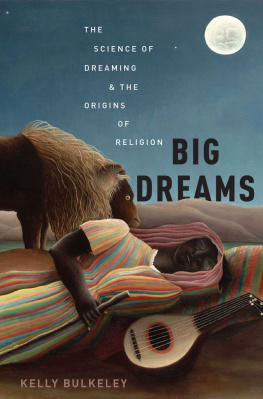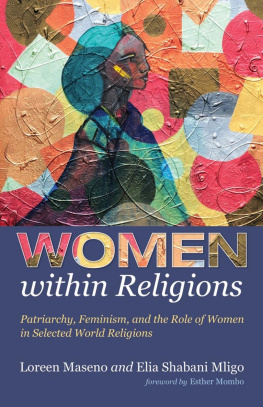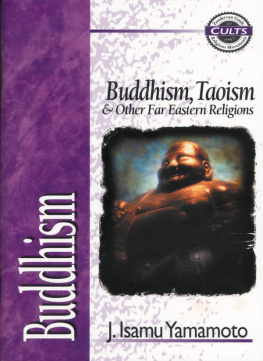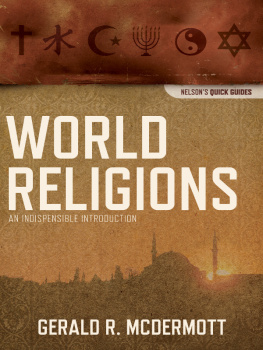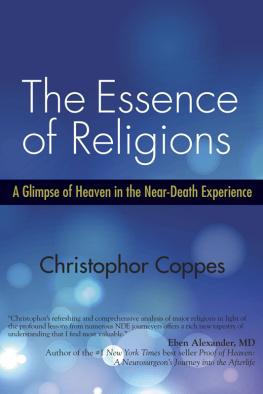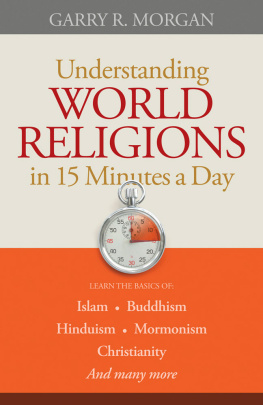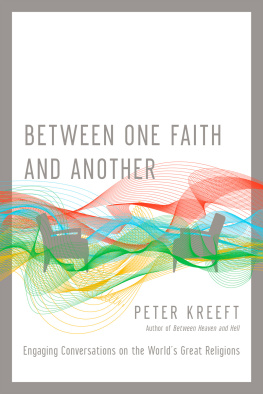Bulkeley - Dreaming in the worlds religions a comparative history
Here you can read online Bulkeley - Dreaming in the worlds religions a comparative history full text of the book (entire story) in english for free. Download pdf and epub, get meaning, cover and reviews about this ebook. City: New York, year: 2008, publisher: New York University Press, genre: Religion. Description of the work, (preface) as well as reviews are available. Best literature library LitArk.com created for fans of good reading and offers a wide selection of genres:
Romance novel
Science fiction
Adventure
Detective
Science
History
Home and family
Prose
Art
Politics
Computer
Non-fiction
Religion
Business
Children
Humor
Choose a favorite category and find really read worthwhile books. Enjoy immersion in the world of imagination, feel the emotions of the characters or learn something new for yourself, make an fascinating discovery.

Dreaming in the worlds religions a comparative history: summary, description and annotation
We offer to read an annotation, description, summary or preface (depends on what the author of the book "Dreaming in the worlds religions a comparative history" wrote himself). If you haven't found the necessary information about the book — write in the comments, we will try to find it.
Bulkeley: author's other books
Who wrote Dreaming in the worlds religions a comparative history? Find out the surname, the name of the author of the book and a list of all author's works by series.
Dreaming in the worlds religions a comparative history — read online for free the complete book (whole text) full work
Below is the text of the book, divided by pages. System saving the place of the last page read, allows you to conveniently read the book "Dreaming in the worlds religions a comparative history" online for free, without having to search again every time where you left off. Put a bookmark, and you can go to the page where you finished reading at any time.
Font size:
Interval:
Bookmark:
Thank you for buying this ebook, published by NYU Press.
Sign up for our e-newsletters to receive information about forthcoming books, special discounts, and more!
Sign Up!
A publisher of original scholarship since its founding in 1916, New York University Press Produces more than 100 new books each year, with a backlist of 3,000 titles in print. Working across the humanities and social sciences, NYU Press has award-winning lists in sociology, law, cultural and American studies, religion, American history, anthropology, politics, criminology, media and communication, literary studies, and psychology.
Dreaming in the Worlds Religions
A Comparative History
Kelly Bulkeley

NEW YORK UNIVERSITY PRESS
New York and London
www.nyupress.org
2008 by New York University
All rights reserved
Library of Congress Cataloging-in-Publication Data
Bulkeley, Kelly, 1962
Dreaming in the worlds religions : a comparative history / Kelly Bulkeley.
p. cm.
Includes bibliographical references (p. ) and index.
ISBN-13: 978-0-8147-9956-7 (cl : alk. paper)
ISBN-10: 0-8147-9956-6 (cl : alk. paper)
ISBN-13: 978-0-8147-9957-4 (pb : alk. paper)
ISBN-10: 0-8147-9957-4 (pb : alk. paper)
1. DreamsReligious aspects History. 2. ReligionsHistory. I. Title.
BL65.D67B83 2008
204.2dc22 2008004107
New York University Press books are printed on acid-free paper, and their binding materials are chosen for strength and durability.
Manufactured in the United States of America
c 10 9 8 7 6 5 4 3 2 1
p 10 9 8 7 6 5 4 3 2 1
For Hilary
I suppose Ive been working on this book as long as Ive been interested in dreams. So I really have to thank everybodyall the teachers, colleagues, and students who helped and guided me along the way. Several people have contributed directly to this project in quite valuable ways, so I wish to express special gratitude to Serinity Young, Madhu Tandan, Lewis Rambo, Bill Domhoff, Kimberley Patton, Bart Koet, Lee Irwin, Dimitris Xygalatas, Roger Knudson, Ernest Hartmann, Jeremy Taylor, Tracey Kahan, Justina Lasley, Ryan Hurd, Nina Azari, David Kahn, Kasia Szpakowska, Patricia Davis, Kate Adams, Malek Yamani, Jeff Kripal, Eleanor Rosch, Mark Fagiano, Lily Wu, Lana Nasser, Celeste Newbrough, and the anonymous reader who reviewed earlier drafts. Im also grateful for the patient encouragement of my editor, Jennifer Hammer, and for the professional work of the production staff of New York University Press.
A comparative study like this one relies on the efforts of many different translators, who sometimes use different systems of rendering the original language into English. I have used the best translations I could find for each quoted text, and altered the spellings of certain names and titles to conform to my understanding of current transliteration standards.
Let us start with what I hope is an uncontroversial assumption: you are a human being. If that is true, then the course of your life follows, and has always followed, a cyclical pattern of waking and sleeping. Like other mammals, you are deeply programmed in your brain and body to alternate between two dramatically different states of being. The survival benefits of being awake are obviousthats when youre alert, focused, and active in the world, able to provide for your basic physical needs. Less apparent are the survival benefits of totally withdrawing from the world and going to sleep, but they are no less vital. You need to sleep. Sleeping is just as essential to your healthy existence as food or water. When you become tired it feels good to sleep, just as it feels good to eat when youre hungry and drink when youre thirsty. Conversely, it feels painful when you dont get enough sleep. Just as you can die from lack of food or water, you would not last long if you were completely prevented from sleeping. When laboratory animals are deprived of all sleep they perish in a matter of days.
As it is, you probably sleep between six and nine hours a night. Plenty of people get by on less and others cant function without more, but your average ratio of time spent awake and asleep is likely to be about 2:1, sixteen or so hours awake vs. eight or so hours asleep. In unusual circumstances (e.g., a natural disaster, a military battle, a family health crisis, a work or school deadline, a really good party) you may be able to stay awake for thirty-six or more hours, but youll be in sad shape at the end of it. No one can fight the sleeping/waking cycle for long without suffering a big decrease in physical and emotional well-being.
Every time you fall asleep your body passes through a series of complex alterations in breathing, heart beat, and muscular tonality. Your brain remains active during sleep, but not because of any external sensory stimulation or deliberate intention on your partrather, your brain is being stimulated by internal sources that function independently of your waking self-awareness. The brains dynamic functioning in sleep is quite different from its activity patterns while awake, and this is why your waking mind rarely recalls what happens to you while you slumber each night. The exception is when you remember a dream.
A dream is an imagined world of sights, sounds, thoughts, feelings, and activities that you (either as a character in the dream or a disembodied observer of it) experience during sleep. Most people spontaneously remember one or two dreams a week, though the memories may be fleeting and the images forgotten within a few minutes after waking. A few people recall several dreams each night, while others say they never remember any dreams at all. Many of the dreams that people do remember are described as bad dreams, with frightening images and negative emotions that carry over from sleep into the waking state. Such nightmarish dreams occur especially often in childhood and adolescence, and perhaps two or three times a year for most adults. If you were asked What is the most frightening dream youve ever had? I suspect you would have little difficulty bringing to mind the memory of a nightmare that made an especially strong and disturbing impression on you when you woke up.
What strikes most people about their dreams is how weird and bizarre they sometimes appear. A dream can put you any place, with anyone, doing anythingthe ordinary limitations of waking life are suspended, allowing for a seemingly infinite range of possible scenarios and interactions. Sometimes the experience is positive (a joyful ability to fly), sometimes negative (being chased by a psycho killer), and sometimes it has no emotional content one way or the other. Most dreams include the basic narrative elements of a story (setting, characters, dialogue, action, plot), though often in strangely fragmented and distorted forms. Oddities abound in dreamssudden shifts of time and location, strange mixtures of people and personalities, inexplicable behavior and feelings, extraordinary abilities and powers. Nothing is impossible in dreams. Everything seems to be permissible.
The weirdness of dreaming is only half the story, however. The other half is the normality of dreaming, its predictable continuity with the mundane reality of waking life. If you look at a persons dreams over time you will find that the basic patterns of dream content offer a remarkably accurate and consistent portrait of that persons major waking life activities, relationships, and emotional concerns. It is a commonsense idea, reallyyour dreams reflect who you are and what is most important in your daily existence. If you are a college student, you probably dream about classes, teachers, and dorm life; if a doctor or therapist, you probably dream about patients, colleagues, and offices; if you love playing or watching baseball or both, you will likely dream about that sport; and if you have three sisters and your relationship with the middle one is the closest and most intense, you probably dream about her more often than about the other two. Whatever the circumstances, your dreams are rooted in the particular conditions of your waking world. Whereas some dreams may be bizarre and outlandish, most seem rather ordinary, normal, and reality-based. You tend to be in places you know, with people you recognize, doing the kinds of things you do in daily life.
Next pageFont size:
Interval:
Bookmark:
Similar books «Dreaming in the worlds religions a comparative history»
Look at similar books to Dreaming in the worlds religions a comparative history. We have selected literature similar in name and meaning in the hope of providing readers with more options to find new, interesting, not yet read works.
Discussion, reviews of the book Dreaming in the worlds religions a comparative history and just readers' own opinions. Leave your comments, write what you think about the work, its meaning or the main characters. Specify what exactly you liked and what you didn't like, and why you think so.

